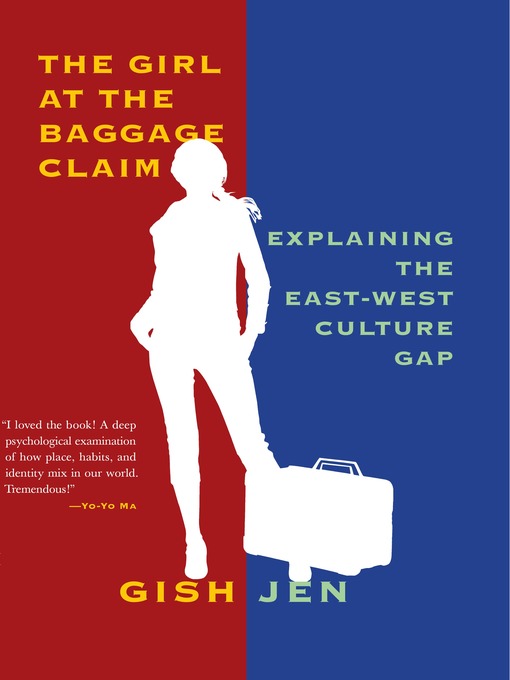
The Girl at the Baggage Claim
Explaining the East-West Culture Gap
کتاب های مرتبط
- اطلاعات
- نقد و بررسی
- دیدگاه کاربران
نقد و بررسی

February 13, 2017
Novelist Jen (Typical American) gleans insight from the field of cultural psychology and her own experiences as an American-born daughter of Chinese immigrants to explore the nature of cultural divide between Eastern and Western societies. She argues that the culture gap “stems from a difference between the conception of self that dominates the West and the conception of self that dominate the East.” She explores the notion of the Western construct as “individualist, independent” and Eastern as “interdependent” and “collectivistic” through a variety of prisms—such as education, business, art, and relationships—and unpacks tough subjects, such as racism and prejudice in America, with sophisticated insight. Her examples are rooted in her own experience as a first generation Chinese-American, so the book focuses a lot on China and America, specifically describing the experiences of more affluent city-dwelling Americans. Jen is most compelling when she draws attention to the blended constructs of those who straddle both cultures, such as Taiwanese-American director Ang Lee or Chinese-American artist Maya Lin. She articulates the complexities of culture with a novelist’s command of language in this rich exploration of the East-West culture gap.

December 1, 2016
A Chinese-American novelist and essayist investigates how culture shapes identity.Award-winning writer Jen (Tiger Writing: Art, Culture, and the Independent Self, 2013, etc.) continues the inquiry of her last nonfiction book, in which she examined differences in Eastern and Western writing and art. Here, drawing on abundant research from psychology and sociology, the author probes East-West distinctions in self-definition and community. These distinctions are so profound, she asserts, that they affect personal relationships, teaching, storytelling, architecture, and even "our ideas about law, rehabilitation, religion, freedom, and choice." In the individualistic West, Jen argues, the self is "a kind of avocado, replete with a big pit on which it is focused." In the collectivist East, the "flexi-self" is interdependent, "a context-focused self, oriented toward serving something larger than itself." Whereas the big pit self believes that individual ability and drive lead to achievement, the flexi-self, Jen asserts, "starts with debt" to parents, teachers, and community. The flexi-self is more attuned to patterns than to "the strange and novel"; the Chinese, therefore, are not "divergent thinkers--thinkers who can easily generate novel uses for a brick, say, or a tree branch," but rather can adapt others' ideas to their own needs. Jen makes much of the Chinese college admission exam, in which students' success is supported by the entire nation. Traffic noise is forbidden so as not to disturb the test-takers, and taxi drivers offer students free rides to the exam site. Yet despite the "self-sacrificing help" of parents and teachers, students are under extreme pressure to perform, since their entire future depends on admission to an elite college. In asserting that American schools "concentrate more on imagination and resourcefulness"--big pit traits--Jen ignores the competition for top nursery schools, emphasis on resume-building extracurricular activities, and intense test-prep tutoring that mark the experiences of many students. While Jen's findings are undoubtedly intriguing, she is not fully convincing in her portrayal of the modest, hardworking flexi-self and the big pit self "with high self-esteem and a lack of stick-to-it-ness."
COPYRIGHT(2016) Kirkus Reviews, ALL RIGHTS RESERVED.

November 1, 2016
Having taken such a sharp, knowing look at America's shifting multicultural boundaries in fiction like Typical American, Jen turns to nonfiction to clarify how differently Easterners and Westerners regard the concepts of self and society and what that means for politics, business, art, and society in an ever closer world. Personal anecdote complements the up-to-date research.
Copyright 2016 Library Journal, LLC Used with permission.

























دیدگاه کاربران